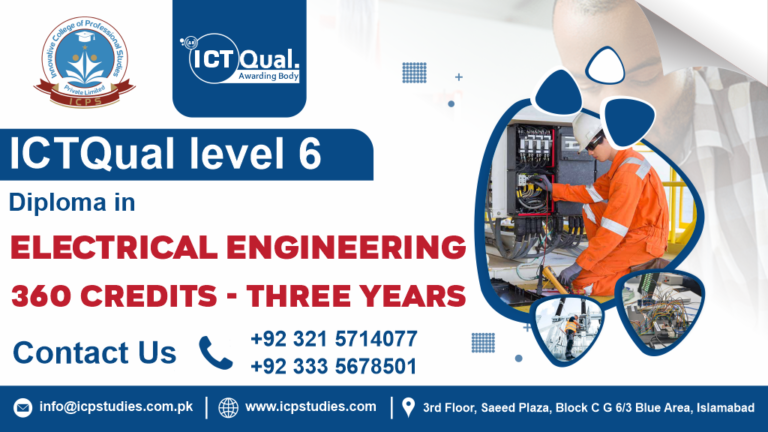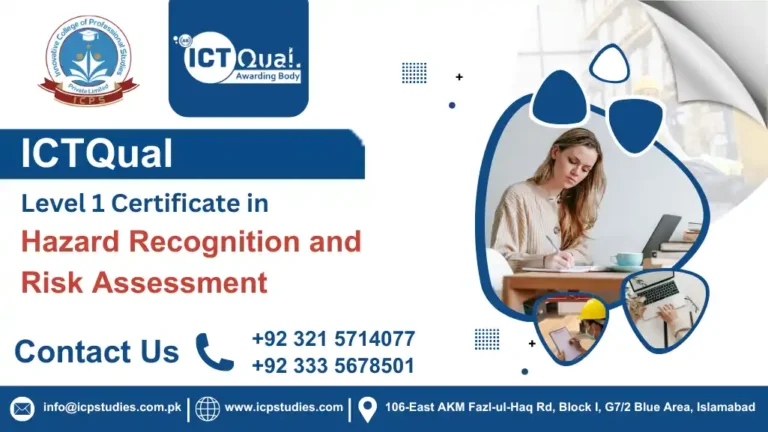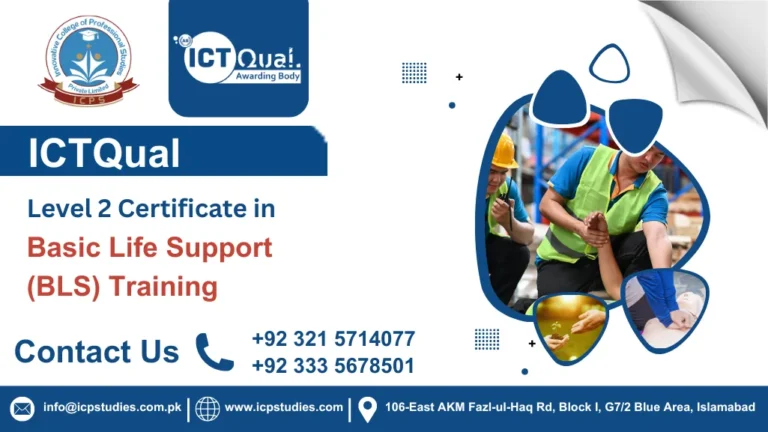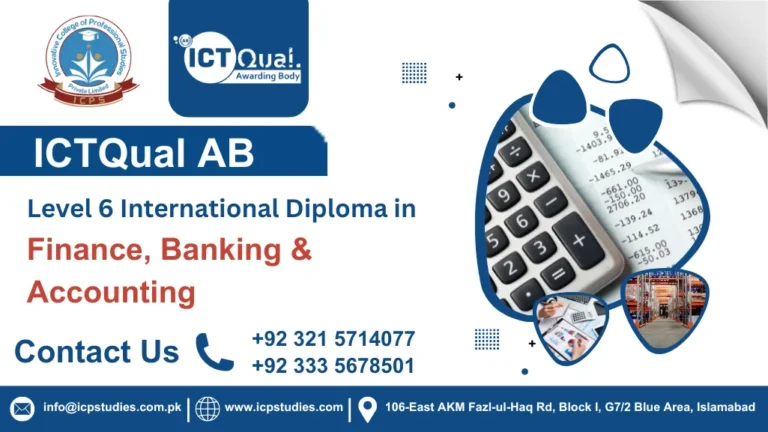In today’s world, where energy efficiency and sustainability are more crucial than ever, professionals with the skills to assess energy usage and implement sustainable systems are in high demand. The ICTQual Level 4 Diploma in Energy Auditing and Sustainable Energy Systems is a cutting-edge qualification designed to equip learners with the knowledge and practical tools needed to lead the transition toward cleaner, more efficient energy solutions.
The ICTQual Level 4 Diploma is a comprehensive training program focused on two core pillars of modern energy management:
Sustainable Energy Systems – Designing and implementing renewable and eco-friendly energy solutions in residential, commercial, and industrial settings.
Energy Auditing – Evaluating how energy is used across various systems and identifying opportunities for savings.
The ICTQual Level 4 Diploma in Energy Auditing and Sustainable Energy Systems is more than just a qualification—it’s a launchpad for a career in one of the most vital sectors of the 21st century. As the world pivots toward sustainable development, your skills in energy efficiency and clean energy solutions will be essential in building a better future.
All About ICTQual Level 4 Diploma in Energy Auditing and Sustainable Energy Systems
Course Overview
The ICTQual Level 4 Diploma in Energy Auditing and Sustainable Energy Systems is a forward-thinking qualification designed to equip learners with the technical knowledge and practical skills needed to lead in the rapidly growing field of energy efficiency and sustainability.
As the global demand for cleaner energy and reduced environmental impact increases, organizations across all sectors are seeking qualified professionals who can evaluate energy use, identify savings opportunities, and implement sustainable solutions. This diploma provides an in-depth understanding of energy auditing processes, renewable energy technologies, energy performance analysis, and sustainable system design.
Combining theoretical foundations with real-world applications, the course prepares learners to assess energy consumption in buildings and industries, develop energy-saving strategies, and contribute to sustainability initiatives in line with global standards and regulations.
Whether you’re a professional in the energy sector, an environmental specialist, or someone looking to transition into a career in sustainable energy, this Level 4 diploma offers the knowledge, tools, and credibility to make a meaningful impact.
Study Units
- This qualification, the ICTQual Level 4 Diploma in Energy Auditing and Sustainable Energy Systems, consists of 12 mandatory units.
- Energy Auditing Fundamentals
- Industry-Specific Energy Auditing
- Carbon Footprint Analysis
- Sustainable Energy Systems
- Energy Legislation and Policies
- Energy Management and Optimization
- Sustainable Energy Policies and Planning
- Emerging Technologies and Innovations
- Project Management for Energy Audits
- Global Industry Case Studies
- Practical Workshops and Simulations
- Capstone Project
- This qualification, the ICTQual Level 4 Diploma in Energy Auditing and Sustainable Energy Systems, consists of 12 mandatory units.
- Energy Auditing Fundamentals
- Industry-Specific Energy Auditing
- Carbon Footprint Analysis
- Sustainable Energy Systems
- Energy Legislation and Policies
- Energy Management and Optimization
- Sustainable Energy Policies and Planning
- Emerging Technologies and Innovations
- Project Management for Energy Audits
- Global Industry Case Studies
- Practical Workshops and Simulations
- Capstone Project
The ICTQual Level 4 Diploma in Energy Auditing and Sustainable Energy Systems is ideal for individuals who are passionate about sustainability, energy efficiency, and environmental responsibility. It is designed for both aspiring professionals and those already working in energy-related fields who wish to expand their knowledge and qualifications in this high-demand area.
✅ This course is especially suited for:
Career Changers – individuals looking to transition into the green energy or environmental industries.
Energy Auditors – looking to formalize or enhance their skills with a recognized qualification.
Sustainability and Environmental Officers – who manage or implement green initiatives within organizations.
Facilities and Building Managers – responsible for improving energy performance in commercial, residential, or industrial properties.
Engineers and Technical Professionals – aiming to specialize in energy systems or renewable technologies.
Graduates in Science, Engineering, or Environmental Studies – seeking to enter the energy and sustainability sector.
Consultants and Advisors – providing services in energy efficiency, compliance, or sustainability planning.
Policy Makers and Local Authorities – working on energy strategies or decarbonization initiatives.
Learning Outcomes
1. Energy Auditing Fundamentals
- Perform energy audits across industrial, commercial, and residential environments using practical methodologies.
- Utilize industry-standard energy auditing tools and software.
- Collect, interpret, and analyze energy consumption data across various sectors.
- Examine real-world case studies to understand best practices in energy audits.
- Develop actionable and cost-effective energy efficiency recommendations.
2. Industry-Specific Energy Auditing
3. Carbon Footprint Analysis
- Calculate carbon footprints across different industries using practical data sets.
- Design and implement carbon reduction strategies aligned with global climate goals.
- Evaluate the effectiveness of carbon offset projects in achieving net-zero objectives.
- Apply industry-specific metrics and critical analysis to interpret carbon data.
- Align footprint analysis with sustainability planning and reporting.
4. Sustainable Energy Systems
5. Energy Legislation and Policies
- Compare global energy policies (EU, USA, Asia, Africa) and their impact on industries.
- Demonstrate knowledge of compliance frameworks like ISO 50001 and ESOS.
- Identify available incentives, grants, and tax credits for sustainable energy initiatives.
- Analyze policy implementation across key sectors including construction, manufacturing, and utilities.
- Understand how regulations drive innovation and investment in sustainable energy.
6. Energy Management and Optimization
- Utilize IoT devices and smart meters for real-time energy tracking and optimization.
- Formulate strategies to manage peak load and minimize energy costs.
- Improve energy efficiency in industrial systems such as steam generation and compressed air networks.
- Launch employee engagement initiatives to foster energy-saving behavior across organizations.
7. Sustainable Energy Policies and Planning
- Develop sustainability strategies tailored for multinational corporations.
- Analyze urban and regional energy planning for sustainable cities.
- Create detailed energy transition roadmaps for industries shifting to low-carbon energy sources.
- Build stakeholder engagement strategies to promote energy policy adoption.
8. Emerging Technologies and Innovations
- Understand the role of AI and machine learning in energy data analysis and optimization.
- Explore blockchain applications in peer-to-peer energy trading.
- Design a blockchain-based energy management system.
- Assess the potential of green hydrogen and fuel cells in transportation and heavy industries.
- Propose integration strategies for waste-to-energy and circular economy models.
9. Project Management for Energy Audits
- Plan and define the scope of energy audit projects, including deliverables and timelines.
- Create and manage budgets effectively for audit and sustainability initiatives.
- Identify and address project risks proactively.
- Implement post-audit monitoring systems to verify energy savings and ensure long-term impact.
10. Global Industry Case Studies
- Evaluate energy efficiency strategies in oil & gas, both upstream and downstream.
- Understand the role of green building certifications in construction and real estate development.
- Optimize energy performance in data centers through IT and cooling innovations.
- Implement water and energy conservation measures in the textile and garment industry.
- Design energy management frameworks for mining and metals operations.
11. Practical Workshops and Simulations
- Participate in simulations of energy audits across diverse sectors.
- Calculate carbon emissions using data from actual organizations.
- Design tailored renewable energy systems, including solar PV and wind solutions.
- Engage in role-play simulations for policy negotiations and stakeholder engagement.
- Apply hands-on skills to solve real-world energy challenges.
12. Capstone Project
- Conduct a full-scale energy audit for a simulated or real company.
- Create and present a sustainability action plan focused on reducing energy use and emissions.
- Demonstrate critical thinking and effective communication in presenting audit findings.
- Work collaboratively in teams to manage complex energy audit scenarios and solutions.
FAQs ICTQual Level 4 Diploma in Energy Auditing and Sustainable Energy Systems







